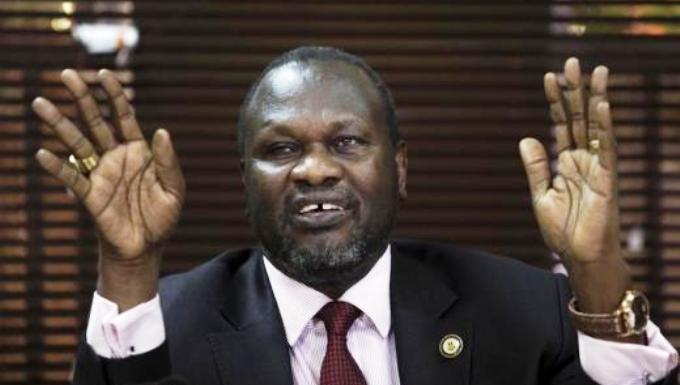Rights body calls for Machar’s release from South Africa

September 9, 2017 (JUBA) – A South Sudanese human rights organisation has appealed to the international community and leaders of the Intergovernmental Authority on Development (IGAD) countries to release rebel leader Riek Machar from confinement in South Africa.
The Centre for Peace and Justice (CPJ) said Machar needed to be released to enable him participate in the upcoming IGAD High Revitalization Forum on the 2015 peace agreement in which he was one of the main signatories.
“Without Riek Machar participation in the upcoming high revitalization forum it will reach nowhere and it will add no value to the ordinary South Sudanese citizens,” said CPJ’s coordinator Tito Anthony.
“[The] international community and regional leaders (IGAD) countries must work to secure release and participation of Riek Machar in the forum, not only him but the forum should include the NDM [National Democratic Movement] of Lam Akol, NAS [National Salvation Movement] of Thomas Cirillo, SPLM-G10 [Sudan People’s Liberation Movement-In-Government 10] and other armed and non-armed opposition to achieve peace in the young nation,” he added.
According to Tito, the upcoming IGAD High Revitalization Forum should include all parties, both the armed and non-armed opposition if the regional bloc wants to help South Sudan achieve peace.
Machar, in South Africa since last year, told the United Nations in June that he wanted freedom from “confinement and detention”.
“My host here South Africa has been hospitable,” he said in a statement released after a teleconference with the UN Security Council.
The South Sudan rebel leader reportedly arrived in South Africa late last year without government’s knowledge after fleeing the capital Juba, amid claims President Salva Kiir wanted to assassinate him.
South African officials, however, deny claims that Machar is under house arrest.
Tens of thousands of people have been killed in the South Sudanese conflict and over two million people have fled the country, while the UN estimates that six million people, or half the population, are severely food insecure.
(ST)
